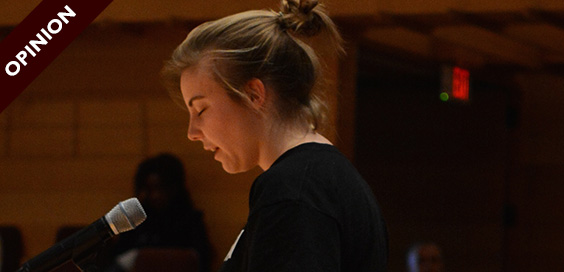All too often I see a social media discussion that involves defenses including “I have freedom of speech; forgive me for trying to voice my opinion like anyone else.”
There’s a process that sets this phrase up. A person often tries to bring up a challenge or alternative point of view by commenting in a discussion about a topic that might be fairly heated already. They might either actually believe their comment or be playing devil’s advocate. The comment gathers responses. Most of the responses are attempts to refute the claim or to offer yet another perspective.
This is where something weird happens. The original commenter begins to feel threatened. It’s not as if anybody enters an Internet debate expecting to get applause, but nobody expects to hear so many people shouting, “No. You’re wrong. I disagree.” So the commenter gets defensive. Instead of seeing the responses as part of the conversation, they see responses as an attack on their person, as an attack on their views or intellect. That’s not what he or she saw when making the comment in the first place, but it is how they view the comments that come after theirs.
The intents have changed, but the commenter is unaware. They start off a comment thinking, “I just want to be heard, take it or leave it,” and this ends the exchange with a defense about why their opinion should be taken with agreement. Their freedom of speech becomes freedom to be agreed with, but not argued against. Of course, none of us want to admit that.
“I have freedom of speech; forgive me for trying to voice my opinion like anyone else.” Taken at face value, this comment says, “My voice is just as valuable as everyone else’s valuable voice.” But when we see it in arguments, it seems to whisper, “I’m saying something that matters. Listen to me, please, but don’t argue with me. I want freedom to the last word.”
What we have to acknowledge is that by using our freedom of speech, we are entering a conversation. We need to embrace our vulnerability without becoming defensive, and we need to embrace that our freedom of speech does not mean that our words are without consequence.
We do freedom of speech a disservice when we use it as an excuse to speak without cost. Freedom of speech means that we have the ability to use words for power. The sounds or symbols of speech have the ability to build, create, uplift and bring life, but with that comes the ability to harm, destroy and tear down. Like any immense power, it comes at a cost. However, if that cost means we come out humbled and more compassionate, it’s worth it.




